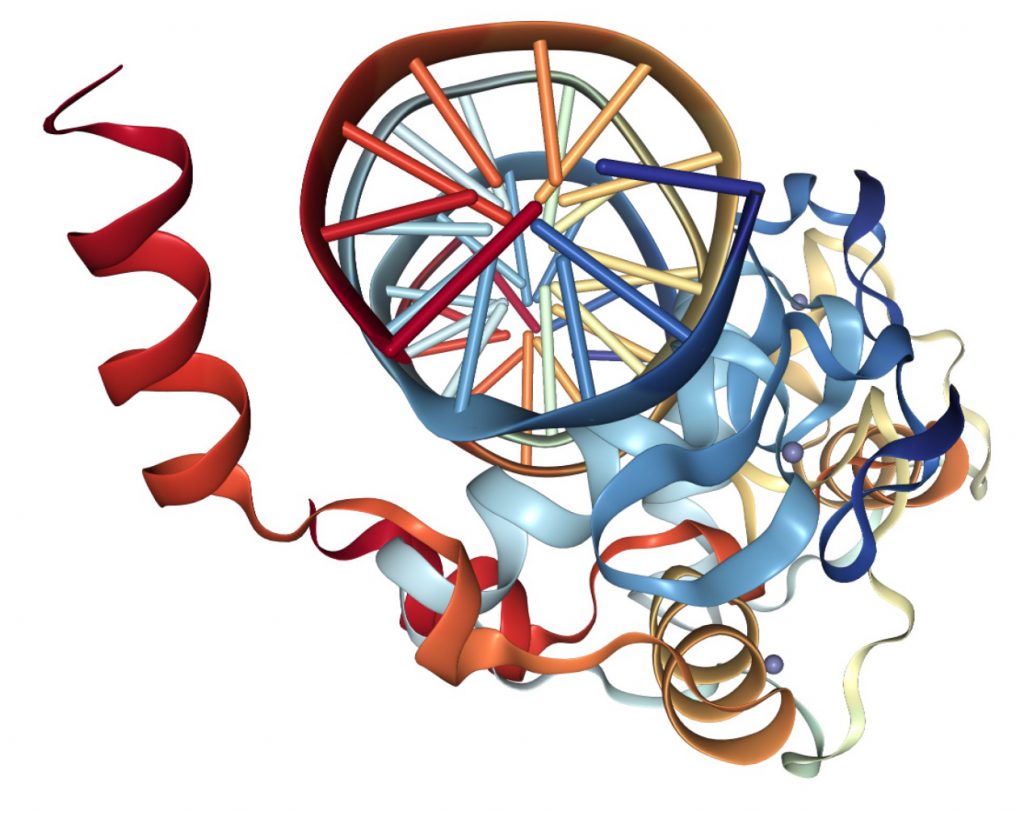
Vitamin D & Genetics: How They Are Correlated?
LAST UPDATED: November 10, 2022
Vitamin D and genetics are correlated in many ways. Let’s learn how it can affect human life.
Vitamin D is not just a ‘vitamin’ but a crucial hormone that is essential to so many functions in your body.
It plays a great role in the immunity of the body, and it influences cell proliferation, apoptosis, and differentiation. Vitamin deficiency is globally prevalent nowadays and is linked with bone diseases, cardiovascular diseases, autoimmune diseases, cancer, and more.
Apart from all, according to various studies from the past, it has been proved that vitamin D is greatly related to genetics.
Let’s dive in to discover more of its aspects.
Roles of Vitamin D in the Human Body
The immune function can be regulated with other roles. When you are outside and exposed to the ultraviolet rays of the Sun, your body produces vitamin D naturally. Vitamin D is required for improved bone health and absorption of calcium.
Digestion and Absorption
Vitamin D is a highly flat soluble material that becomes part of fatty acids or bile acids during fat digestion. The vitamin can then transmit all the fatty acids through the intestinal cells. The Chylomicrons can transmit vitamin D through the lymph vessels and finally through the blood circulation.
Vitamin D Supplements
Vitamin D supplements play a significant role as a protector of type 1 diabetes. The normal vitamin D level within the blood serum can be considered as 20-100 ng/ml. Bone health can depend on the extra calcemic roles of the Vitamin D supplements.
Foods Rich in Vitamin D
Fishes (especially Salmon and Tuna) naturally produce Vitamin D. Other foods that contain Vitamin D are dairy products, eggs, and shrimp. To maintain enough Vitamin D in the body, supplements can also be taken.
Status Of Vitamin D and Genetic Obesity
Obesity can be defined as the excess amount of body fat. Presently it can be considered as the 5th positioned risk factor for mortality. Determining the associated factors and related issues in cross-sectional studies has proved that obesity and vitamin D are interlinked. Plasma levels can measure the status of vitamin D. According to studies; the Body Mass Index is related to vitamin D deficiency, which can be analyzed quantitatively. In 2015, around 15 studies revealed that vitamin D deficiency is common in obese individuals. However, the nature of the association between obesity and genetics is still unclear.
Clinical studies have proved an alarming rate of high obesity and vitamin D deficiency among young children and teenagers. In addition, some studies have also shown that obese children also have a deficit of serum in their blood.
Genetic Mechanism and Relation to Vitamin D
International researchers have found out that Vitamin D deficiency is not solely due to the lack of sunlight or the diet. Genetic factors play a very important role in determining Vitamin D concentration and serum count. There are generally 4 variants that play a great role in the mechanism of genetics. The twin families have reported striking genetic mechanisms related to the heredity with vitamin D deficiency.
The important control points of Vitamin D molecules can be controlled genetically. Vitamin D deficiency can lead to musculoskeletal defects and can increase cardiovascular diseases with the risk of diabetes and even Cancer.
When the doctors know the gene variants, they can quickly identify those at risk of developing vitamin D deficiency.
Vitamin D Signaling with Chromatic Model Genes
Chromatin is a complex gene where nucleosomes can stabilize with the epigenetic landscapes of the various cells. This gene can obstruct the transcription factors of the promoters and the enhancers of the genes so that 100-200000 transcription factors can be accessible. The epigenome is identified by :
- Methylations and acylations and more than 100 post-translational modifications of the histone proteins
- Higher order structures of chromatin, such as 3D arrangements of chromatin
- DNA methylation, also known as the CPG Islands
When the epigenome is dynamic, it can be modulated by various environmental signals influencing all the chromatin customizing enzymes.
Common Gene Variants for Vitamin D
Among the popular gene variants, the common ones are cholesterol, metabolism of Vitamin D, and transmission of Vitamin D throughout the body. When one or more variants are present inside the body, the deficiency of Vitamin D can be observed more in individuals.
Obesity and Vitamin-D-related Genetic Markers
People with obesity have been proven to possess vitamin D deficiency. The genetic determinants of 25 OH(D) levels are associated with obesity traits. When the genetic determinants of vitamin D are combined with the genetic determinants of obesity, a new observation can be found that can suggest 2 different things. A lack of studies can investigate the influence of gene variations except for the VDR on obesity. At the same time, the biological significance can suggest variations.

Genetic Variants of VDR
Genetic variants can be studied in various countries among various racial groups. The human ethnicities, including American, Caucasian, and Asian, have been tested among the different variants. A study was conducted on obesity and VDR polymorphism. The study proved that there is an association between VDR polymorphism and obesity. For example, French Caucasian individuals are commonly affected with type 2 diabetes. Many studies have been conducted after that regarding similar topics. A VDR analysis was conducted among the Central European countries, where the anthropometric features are associated with obesity.
Treatment Strategies
The researchers and doctors are rethinking different strategies to combat vitamin D deficiency. Earlier, they studied with a selected racial group, but then the results remained incomplete. Treatment results may vary with different persons as some people may respond to vitamin D supplements and some not. In addition, the genetic background of different persons depends on their response to sunlight differently.
Hydroxylation by Vitamin D
The hydroxylation process involved with Vitamin D can affect first the liver and then the kidney. When this occurs among children, rickets develop. Two very rare genetic variants can also cause rickets. When the enzymes cannot be combined with calcitriol, they can form defective diseases caused by vitamin deficiency.
Vitamin D Focus on Genes in TH1 cells
Researchers have used these THP1 cells for two decades as Leukaemia cell lines.
How can you Absorb Vitamin D?
Due to lack of sunlight and improper diet, vitamin D deficiency occurs. But most of the time, genetics plays the most important role in vitamin D deficiency.
So if you include vitamin D-rich foods in your diet or take huge amounts of sunlight, you may be able to recover from the deficiency, even if due to the genes.
The deficiency can lead to multiple skeletal problems and bone issues. It can even lead to diabetes and Cancer. Therefore, it is always important to understand genetics as they play an important role in processing Vitamin D.
Strands of DNA compose your gene. The variations result from permutation and combination or the mixture of the genes of the parents. These variations play the director’s role and can direct how we absorb, digest, and utilize the nutrients. Many people, when found from the blood test that they are suffering from insufficient vitamin D, start taking the supplements and then check their vitamin D level once again after taking the supplements for some weeks. It may be possible that the vitamin level has not increased after taking vitamin medicines and supplements. This is because you have not done your genetic test. After you have done the genetic tests, you can easily identify the issues which cause vitamin D deficiency.
Every individual has different nutrient needs and absorbing capacities. For impacting your health, there are above 2000 variants of genes. Some of the variants are harmful, and some of them are beneficial. Therefore, your own genetic structure can help you in getting the right amount of nutrients and dosages that can help in improving your health overall.
Your Genetics and Vitamin D
The genetic variations of many people require them to take vitamin D. However, you should understand that the dosage is very important. Without analyzing your genetics, the right dosage cannot be determined. Sometimes you may require another vitamin with vitamin D to get the best outcome.
If you get your DNA tested and try to understand on your own what you should do, it can sometimes be tricky. So it is always advisable to take the test from a reputable laboratory that can also advise you on dosage.
Individuals who have inherited several variants of genes possess a two and half times increased risk of developing vitamin D concentration with blood that is lower than 75nmol/ml. Conversely, when the individuals fall under the lower quartile of the variants, they have lower risks of vitamin D deficiency.
Final Thoughts
Many studies have proved that vitamin D deficiency is due to genetics. So before taking any vitamin D medicines and supplements, you should go for DNA testing or genetic testing from a reputable laboratory. When the genetic testing is done, it determines the right dosage for taking the vitamins so that the right amount of vitamins can be taken. When you know the right dosage, the right amount of vitamins can be absorbed.
The role of vitamin D has been mentioned above, which says that digestion and absorption of nutrients are most important. The natural foods that give vitamin D are Salmon and Tuna fish.
Autumn DNA works to personalize your vitamin routine by utilizing advanced DNA research and a thorough lifestyle assessment to help you optimize your health efficiently!
Hope the above article has made you understand the status of vitamin D and its association of it with the genetic mechanism.
Stay tuned for more intriguing blogs concerning Genetics!!
